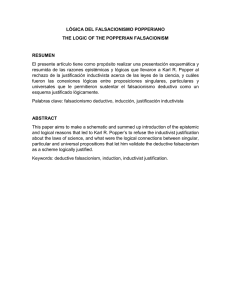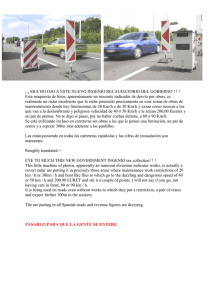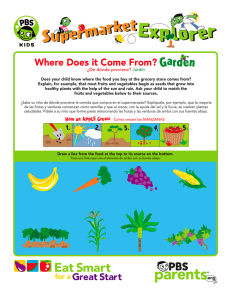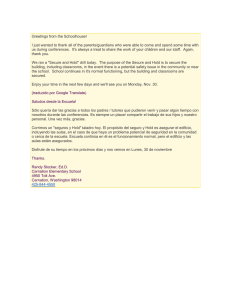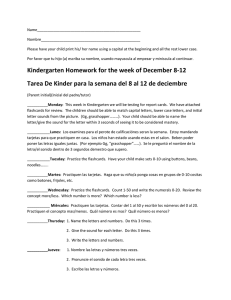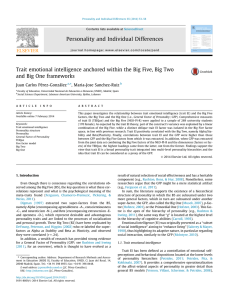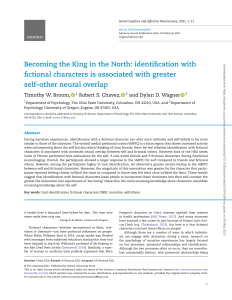Family Traits and Traditions: A Make-a
Anuncio
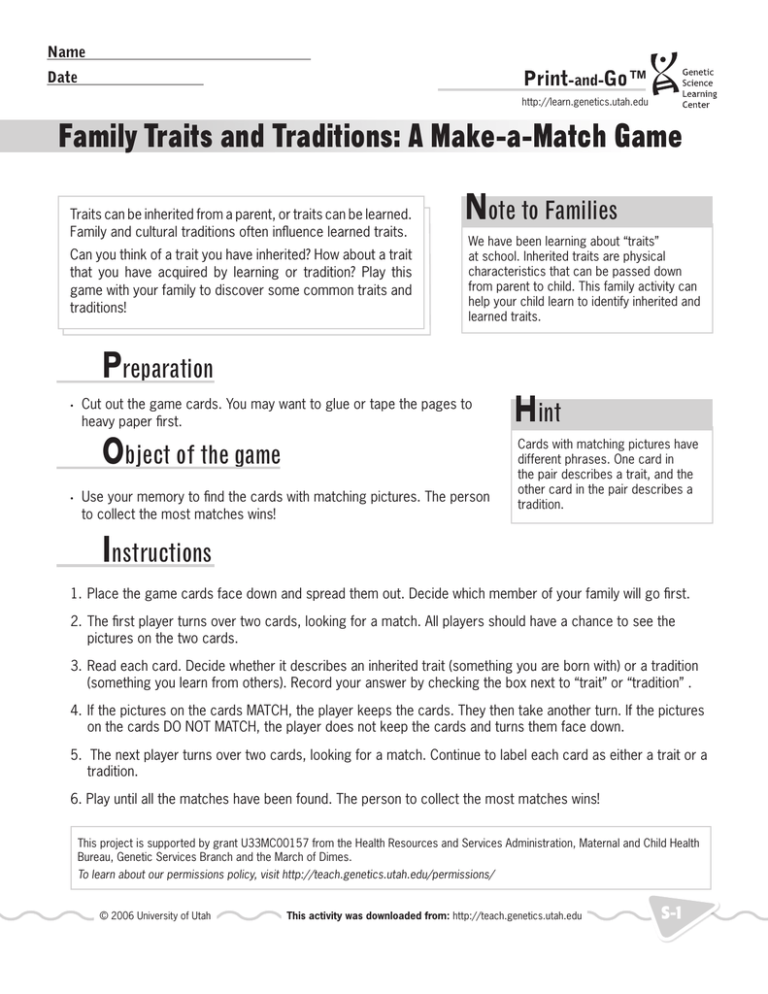
Name Print-and-Go™ Date http://learn.genetics.utah.edu Family Traits and Traditions: A Make-a-Match Game Traits can be inherited from a parent, or traits can be learned. Family and cultural traditions often influence learned traits. Can you think of a trait you have inherited? How about a trait that you have acquired by learning or tradition? Play this game with your family to discover some common traits and traditions! Note to Families We have been learning about “traits” at school. Inherited traits are physical characteristics that can be passed down from parent to child. This family activity can help your child learn to identify inherited and learned traits. Preparation • Cut out the game cards. You may want to glue or tape the pages to heavy paper first. Object of the game • Use your memory to find the cards with matching pictures. The person to collect the most matches wins! Hint Cards with matching pictures have different phrases. One card in the pair describes a trait, and the other card in the pair describes a tradition. Instructions 1.Place the game cards face down and spread them out. Decide which member of your family will go first. 2.The first player turns over two cards, looking for a match. All players should have a chance to see the pictures on the two cards. 3.Read each card. Decide whether it describes an inherited trait (something you are born with) or a tradition (something you learn from others). Record your answer by checking the box next to “trait” or “tradition” . 4.If the pictures on the cards MATCH, the player keeps the cards. They then take another turn. If the pictures on the cards DO NOT MATCH, the player does not keep the cards and turns them face down. 5. The next player turns over two cards, looking for a match. Continue to label each card as either a trait or a tradition. 6. Play until all the matches have been found. The person to collect the most matches wins! This project is supported by grant U33MC00157 from the Health Resources and Services Administration, Maternal and Child Health Bureau, Genetic Services Branch and the March of Dimes. To learn about our permissions policy, visit http://teach.genetics.utah.edu/permissions/ © 2006 University of Utah This activity was downloaded from: http://teach.genetics.utah.edu S-1 Name Print-and-Go™ Date http://learn.genetics.utah.edu I have attached earlobes Trait □ Tradition I have pierced ears □ I can roll my tongue Trait □ Tradition □ I have dimples Trait □ Tradition © 2006 University of Utah □ Tradition □ Tradition □ I like to eat spicy foods Trait □ Tradition □ I greet others with a smile □ My natural hair color is brown Trait Trait □ Trait □ Tradition □ I use dye to change my hair color Trait □ This activity was downloaded from: http://teach.genetics.utah.edu Tradition □ S-2 Name Print-and-Go™ Date http://learn.genetics.utah.edu I am lefthanded Trait □ Tradition I use my hand to catch a ball □ I am colorblind Trait □ Tradition □ Tradition □ © 2006 University of Utah □ Tradition Tradition □ Trait □ Tradition □ I care for a pet □ I have freckles Trait □ I like to create art I have allergies Trait Trait Trait □ Tradition □ I lay in the sun to get a tan □ Trait □ This activity was downloaded from: http://teach.genetics.utah.edu Tradition □ S-3 Name Print-and-Go™ Date http://learn.genetics.utah.edu Los Rasgos Familiares y Las Tradiciones: Un Juego de Hacer Parejas Los rasgos pueden ser heredados de los padres o pueden ser aprendidos. La Familia y las tradiciones culturales frecuentemente tienen influencia en los rasgos aprendidos. ¿Puede pensar de un rasgo que ha heredado? ¿Le parece que ha adquirido algún rasgo por aprendizaje o tradición? ¡Juegue con su familia y descubra algunos rasgos y tradiciones comunes! Nota para la Familia En la escuela hemos aprendido sobre los rasgos hereditarios. Estos son características físicas que los padres pueden pasar a sus hijos. Esta actividad familiar puede ayudar a sus niños a identificar los rasgos heredados y aprendidos. Preparación • Recorte las tarjetas del juego. Si desea puede pegar las tarjetas en un papel más grueso. Objetivo del Juego • Use su memoria para encontrar la tarjeta con la foto que coincida con su pareja. La persona que colecta más parejas gana. Instructions Pista Las tarjetas con las fotos que coinciden en pareja tienen frases diferentes. En una tarjeta de la pareja se describe un rasgo y en la otra tarjeta se describe una tradición. 1.Ponga las tarjetas boca abajo y extendiéndolas. Decida quién de los miembros de tu familia va a jugar primero. 2.La primera persona que juega voltea dos tarjetas buscando obtener una pareja. Todos los jugadores tienen la oportunidad de ver las fotos en las dos tarjetas. 3. Lea cada tarjeta. Decida si la tarjeta describe un rasgo heredado (algo con que uno nace) o una tradición (algo que uno aprende de otros). Registre su respuesta marcando la casilla que se encuentra al lado de “el rasgo” o “la tradición”. 4. Si las fotos de las tarjetas hacen una pareja, el jugador se queda con las tarjetas. Entonces le toca la oportunidad a otro jugador. Si las fotos en las tarjetas no hacen pareja entonces el jugador regresa las tarjetas boca abajo. 5. El siguiente jugador voltea dos tarjetas otra vez buscando obtener una pareja. Continúe marcando cada tarjeta según decida es un rasgo o una tradición. 6. Juegue hasta que todas las parejas hayan sido encontradas. ¡La persona que colecta más parejas gana! Este proyecto es soportado por grant U33MC00157 de the Health Resources and Services Administration, Maternal and Child Health Bureau, Genetic Services Branch y the March of Dimes. Para aprender sobre nuestra política de los permisos, visite a http://teach.genetics.utah.edu/permissions/ © 2006 University of Utah This activity was downloaded from: http://teach.genetics.utah.edu S-4 Name Print-and-Go™ Date http://learn.genetics.utah.edu Tengo los lóbulos pegados Tengo las orejas agujereadas I have attached earlobes I have pierced ears Rasgo/ Trait Rasgo/ Trait Tradición/ Tradition Tradición/ Tradition Puedo enrollar mi lengua Me gusta la comida picante I can roll my tongue I like to eat spicy foods Rasgo/ Trait Rasgo/ Trait Tradición/ Tradition Tengo hoyuelos I have dimples Tradición/ Tradition Saludo a los demás con una sonrisa I greet others with a smile Rasgo/ Trait Tradición/ Tradition Rasgo/ Trait Tradición/ Tradition El color natural de mi pelo es marrón Uso tinte para cambiar el color de mi pelo My natural hair color is brown I use dye to change my hair color Rasgo/ Trait © 2006 University of Utah Tradición/ Tradition Rasgo/ Trait This activity was downloaded from: http://teach.genetics.utah.edu Tradición/ Tradition S-5 Name Print-and-Go™ Date http://learn.genetics.utah.edu Soy zurdo I am left-handed Uso mi mano para agarrar la pelota I use my hand to catch a ball Rasgo/ Trait Tradición/ Tradition Rasgo/ Trait Tradición/ Tradition Soy daltónico Me gusta crear arte I am color blind I like to create art Rasgo/ Trait Tradición/ Tradition Tengo alergias I have allergies Rasgo/ Trait Tradición/ Tradition Cuido de una mascota I care for a pet Rasgo/ Trait Tradición/ Tradition Tengo pecas I have freckles Rasgo/ Trait Tradición/ Tradition Me acuesto bajo el sol para broncearme I lay in the sun to get a tan Rasgo/ Trait © 2006 University of Utah Tradición/ Tradition Rasgo/ Trait This activity was downloaded from: http://teach.genetics.utah.edu Tradición/ Tradition S-6
